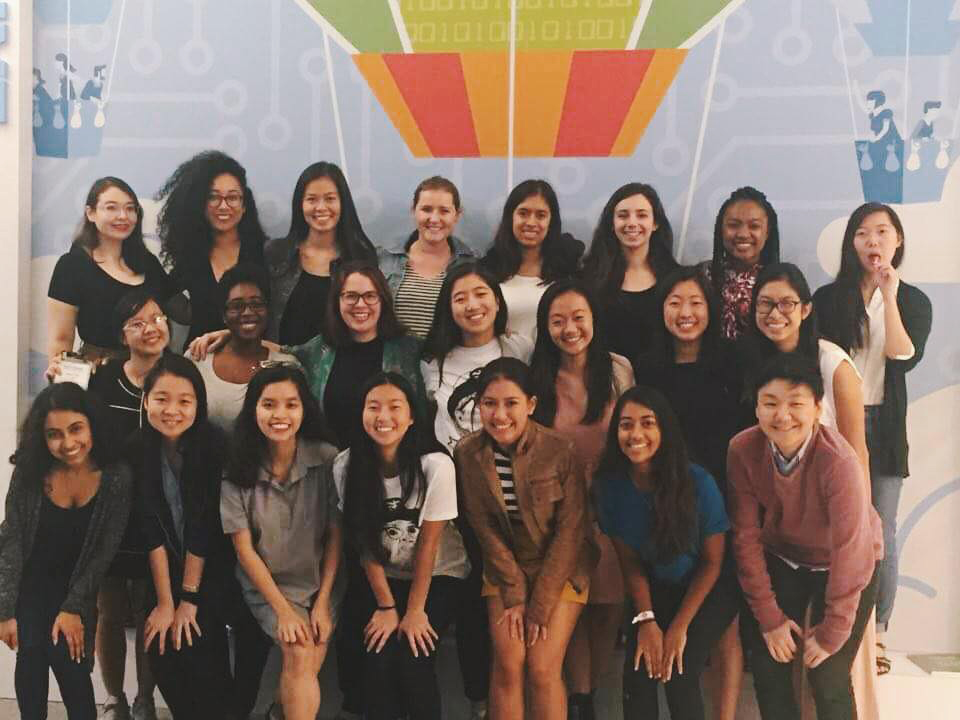
Last year, only a handful of students represented Yale at the Grace Hopper Celebration of Women in Computing, an annual conference celebrating women in technology. This year, however, upward of 30 Yale students attended as a result of increased funding from Yale’s Department of Computer Science.
The conference, which according to its website is the world’s largest gathering of women technologists, is produced by the Anita Borg Institute — a social enterprise aimed at promoting women in technology. Its mission is to highlight the contributions of women to computing by convening the field’s women leaders. For three days last week, college students from across the world traveled to Houston, where they networked with leaders from industry, government and academia. According to the schedule of events, offerings were diverse, ranging from presentations on data science and social entrepreneurship to computer science career fairs.
The conference, however, comes with a hefty price tag. According to Payal Modi ’17, President of FloatYale, a student organization aimed to promote women and gender minorities in computer science, Grace Hopper normally costs approximately $1,200 per person.
“It was empowering, particularly as a black woman, to go to a conference where there are a hundred, two hundred black women in one room,” said Saran Morgan ’18, a computer science major. “It was super empowering and inspiring, and I got the feeling where people were okay to admit their faults, their struggles, and at the same time be able to celebrate their successes.”
Computer science professor Holly Rushmeier said that this year, the students who attended the conference sought out funding from a variety of different sources, adding that the department was allotted $36,000 a year to send students to Grace Hopper. According to Rushmeier, this funding came from a variety of sources including the offices of the University provost, the dean of Yale College and the dean of the Faculty of Arts and Sciences. This funding will be renewed every year for two more years, she added.
“Approximately 25 [students] were funded through this money, and then [FloatYale] got additional funding of their own,” Rushmeier said. “Then, various students applied directly to the Anita Borg Institute, and they awarded scholarships to go to the conference through that process.”
According to Rushmeier, the department had roughly $5,000 in funding to sponsor students for the conference last year. However, because registration for Grace Hopper begins at the end of the summer, by the time the department learned of the funding, the conference was already sold out. The only students who were able to take advantage of the funding last year, therefore, were those who had been waitlisted for the conference.
Students interviewed said that attending the conference had a tremendous impact on both their personal lives and early careers.
“It was empowering to see everyone there, because usually you don’t see such large ratios of women, and that sometimes leads people to question if you have a future [in computer science],” said Summer Wu ’18, a computer science major. Wu received funding to attend last year through Google, but was sponsored through Capital One this year.
Other students spoke of experiencing a renewed commitment to computer science after attending the conference.
Emon Datta ’18 said she appreciated hearing from women who are interested in the social implications of technology, which, she said, the tech industry hasn’t historically focused on.
“I’m someone who’s always wanted to go into STEM and not [Computer Science] specifically, so it’s not something that changed ideas of what I want to do in the future,” Datta said. “But it renewed my commitment in computer science, and I got to see powerful role models who look like me.”
Rushmeier said that looking forward to next year, she is optimistic about the availability of funding. Now that a constant source of funding for the next two years is in place, the department can buy bulk registration and accommodation in advance, she added.
In selecting students to sponsor, Rushmeier said she did so by seniority because this was the most easily applied and equitable measure. Seniors and juniors were given priority, and previous computer science courses were also considered. She added that for the next iteration of Grace Hopper, she will again prioritize seniority while selecting students, although students who have already attended will be given lower priority.
Anita Borg Institute’s Grace Hopper Celebration of Women in Computing was founded in 1994.
Clarification, Oct. 28: A previous version of this article was ambiguous regarding the source of Summer Wu’s funding to attend the Grace Hopper conference. While Wu received funding to attend Grace Hopper last year through Google, she was sponsored through Capital One this year.







